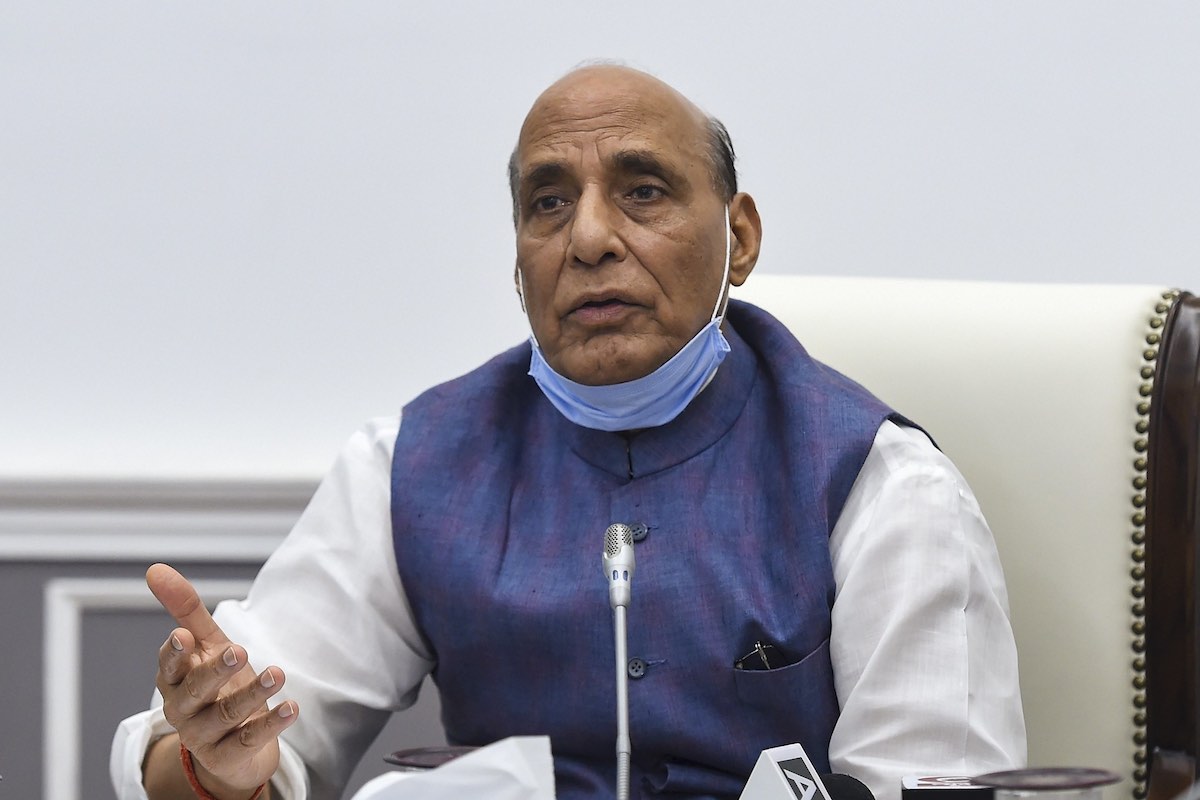First rear fuselage for LCA Mk1A handed over to HAL
The fuselage is the primary structure of an aircraft that houses the cockpit, crew, passengers, and cargo. The rear fuselage, specifically, supports the tail section and its vital components.
For the project, 75 students of the university have been working on the Chandigarh University Student Satellite Project under the guidance of eminent Indian scientists.

Defence Minister Rajnath Singh visits premier radar station of Indian Air Force
Defence Minister Rajnath Singh today inaugurated the Kalpana Chawla Centre for Research in Space Science & Technology (KCCRSST) at Chandigarh University. He also launched a scholarship scheme, worth Rs 10 crore, for the wards of defence personnel of the three services.
In his address, the minister described the establishment of the research centre as an important step towards strengthening the space sector of the country. He emphasised that it is only through these efforts that India can become a leader in future technologies.
Advertisement
He likened the KCCRSST with ‘pride of India’ Kalpana Chawla, hoping that this research facility would touch new heights, similar to the remarkable achievements of the late India-born astronaut who brought universal recognition to her country of origin.
Advertisement
“In the 21st century, the future of India can be secured only when you have a gleam in your eyes to reach the stars and planets. More Indians like Aryabhatta, Vikram Sarabhai, Satish Dhawan and Kalpana Chawla will emerge from amongst you all if you eye different planets and constellations,” Rajnath told the students present on the occasion.
Underlining the importance of the space sector in today’s times, he said it is deeply connected with mapping, imaging and connectivity facilities, speedy transportation, weather forecast, disaster management as well as border security, adding that it played a crucial role in keeping the world connected during the COVID-19 pandemic, from testing to data-transfer and analyses.
The government understands the potential of the space sector, he added, recalling the four major pillars of reforms in the sector envisioned by Prime Minister Narendra Modi. These pillars are freedom of innovation to the private sector; the role of the government as an enabler; preparing the youth for the future and viewing the space sector as a resource for progress. He hoped that the actions identified in the pillars will take the space sector to newer heights and give a new direction to the country’s progress.
The minister called for an active and long-term public-private partnership to take the education and science sectors to a global level and make India a knowledge economy.“Today, the private sector is exposed to a large number of opportunities in the space sector. Whether it is defence or space, we are fully welcoming the private sector,” he said, reiterating the government’s commitment to strengthening the private sector for the holistic development of the nation.
Established with the objective of training students in space science, satellite development and meeting future challenges in space research, the state-of-the-art KCCRSST would be the ground control station for the Chandigarh University’s Student Satellite (CUSat), an in-house developed nano-satellite being designed by the students of the university and a Geo-Spatial Centre for research, besides other projects.
The CUSat will be among the 75 student-built satellites to be launched into space on the eve of the 75thIndependence Day in 2022. Chandigarh University has joined the list of 13 institutes like the Indian Institute of Technology (IIT) Kanpur, IIT Bombay and become the first institution in North India to design and develop its own satellite. For the project, 75 students of the university have been working on the Chandigarh University Student Satellite Project under the guidance of eminent Indian scientists.
Advertisement